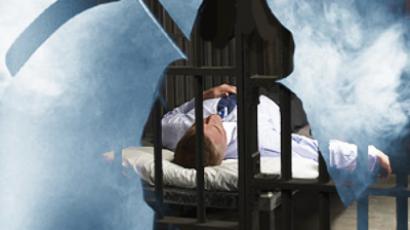UK police steps up fight against honor killings among immigrants
Thousands of women and children worldwide are killed every year because their families believe they brought dishonor on them. These killings have recently been on the rise within immigrant communities in Western Europe.
Honor-related violence is far from being a relic of a bygone era, and it is such a concern in Britain today that the police are introducing new guidelines and training for officers to deal with it.
They will include recording an honor crime with less evidence, or when a victim hasn’t even reported it.
“There are some very specific dynamics in this type of crime and we need to constantly reinforce the staff to make sure that when they are confronted with something, they get the response right, because in this work you very often have only one chance to save a life,” says Commander Steve Allen from Metropolitan Police.
Prosecutors want to see a move towards preventing the violence, rather than being forced to react after the act.
“My view is that the younger that you are able to engage with people, the more likely it is that you will be able to change their attitude. And so it’s not about saying that one culture is worse or any better than the other, it’s about ensuring that people respect each other’s rights,” says Nazir Afzal from the Crown Prosecution Service.
For 18-year-old Pavanpreet Athwal, however, it’s too late. She may look like an ordinary girl, but her cheerful demeanor belies a tragic childhood. Her mother disappeared without trace when Pavanpreet was seven.
“I had to live with my grandma and my dad, who told me that she had ran off with another man – ‘She doesn’t love you, that is why she’s gone, it’s your fault.’ So I thought that she didn’t love us and I was the problem,” Pavanpreet recalls.
It wasn’t until last year that Pavanpreet discovered the truth – that her father and grandmother had arranged for Surjit Athwal to be murdered on a family holiday to India, because she wanted a divorce. Pavanpreet’s life was turned upside down again.
“We were getting ready for school and the police came and raided the house. I was confused because I didn’t know what was going on. The police came in and arrested my dad and grandma. I thought ‘Oh my god, what is happening?’ because they’d told me a completely different story,” Pavanpreet says.
Surjit Athwal was the victim of an honor killing. The UN estimates that, globally, 5,000 women are killed in the name of honor every year. In the UK alone up to 12 people are murdered annually, according to the Crown Prosecution Service, through a desire to protect the honor of a family or community. The vast majority of victims are women.
“Honor-based violence is a form of violence against women. Talking is one thing – and the reality has to be action, implementation and safety and justice,” says Dr. Aisha Gill, a criminologist at Roehampton University.
Although Pavanpreet’s father and grandmother are now in prison for conspiracy to murder, her mother’s actual killers are still at large in India. The girl is campaigning to raise money to have them brought to justice.
The UK’s police forces hope that making officers aware of issues surrounding honor-based crimes will prevent more families like Pavanpreet’s from being torn apart from the inside.
Unfortunately, the idea of “honor” is already deeply entrenched in the identity of many of Britain’s immigrant communities, making it an uphill struggle for law enforcement to appeal to them.













